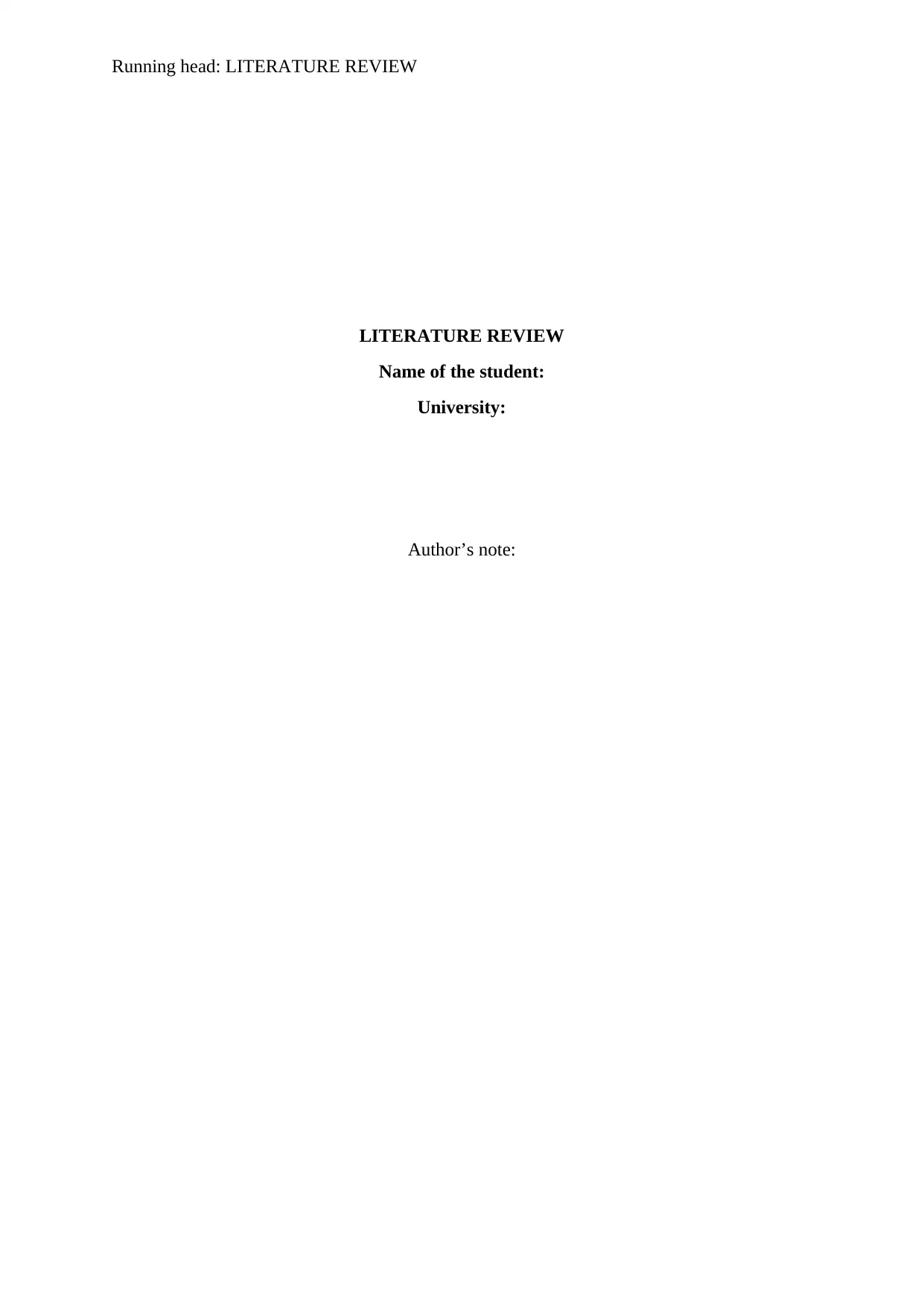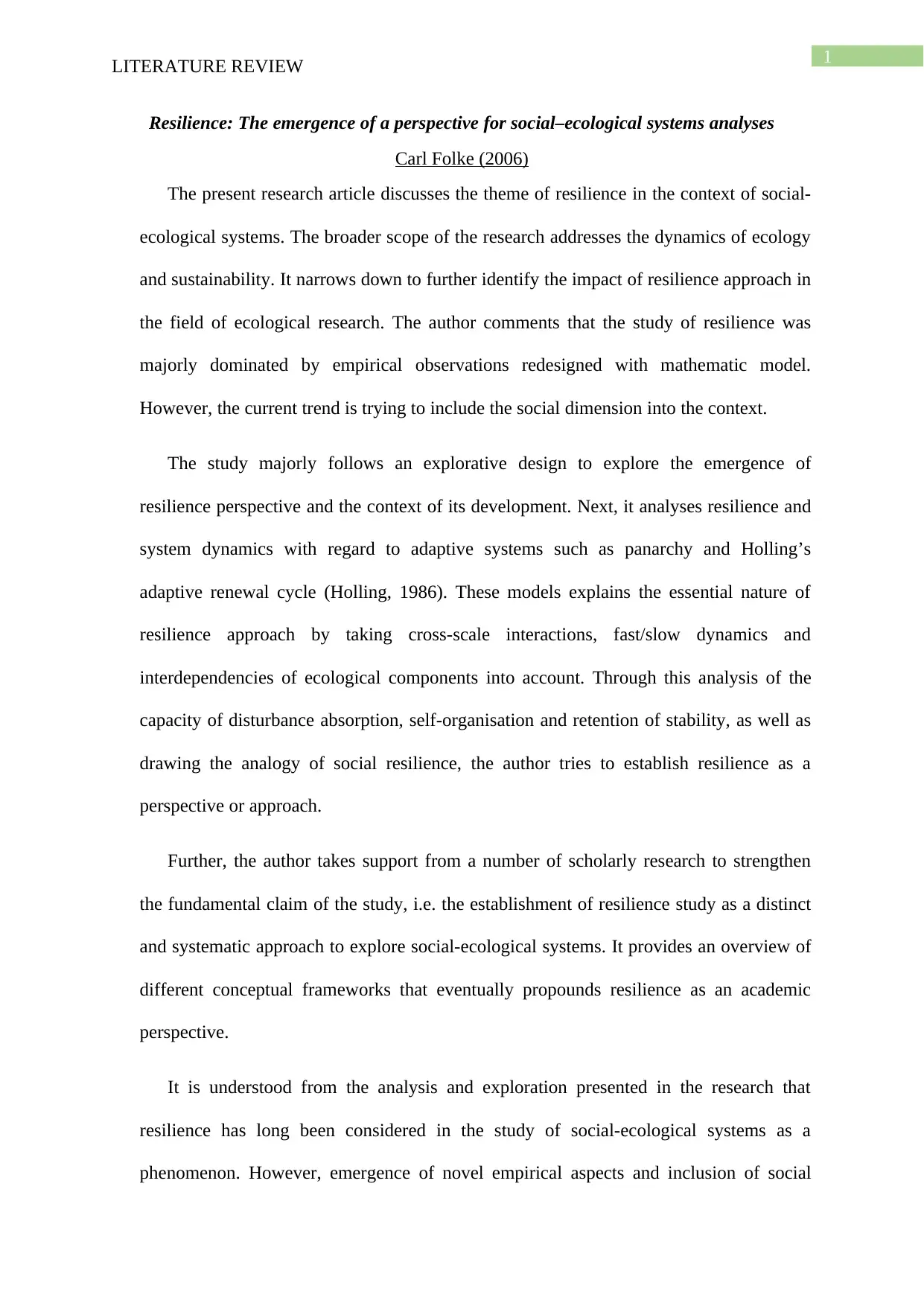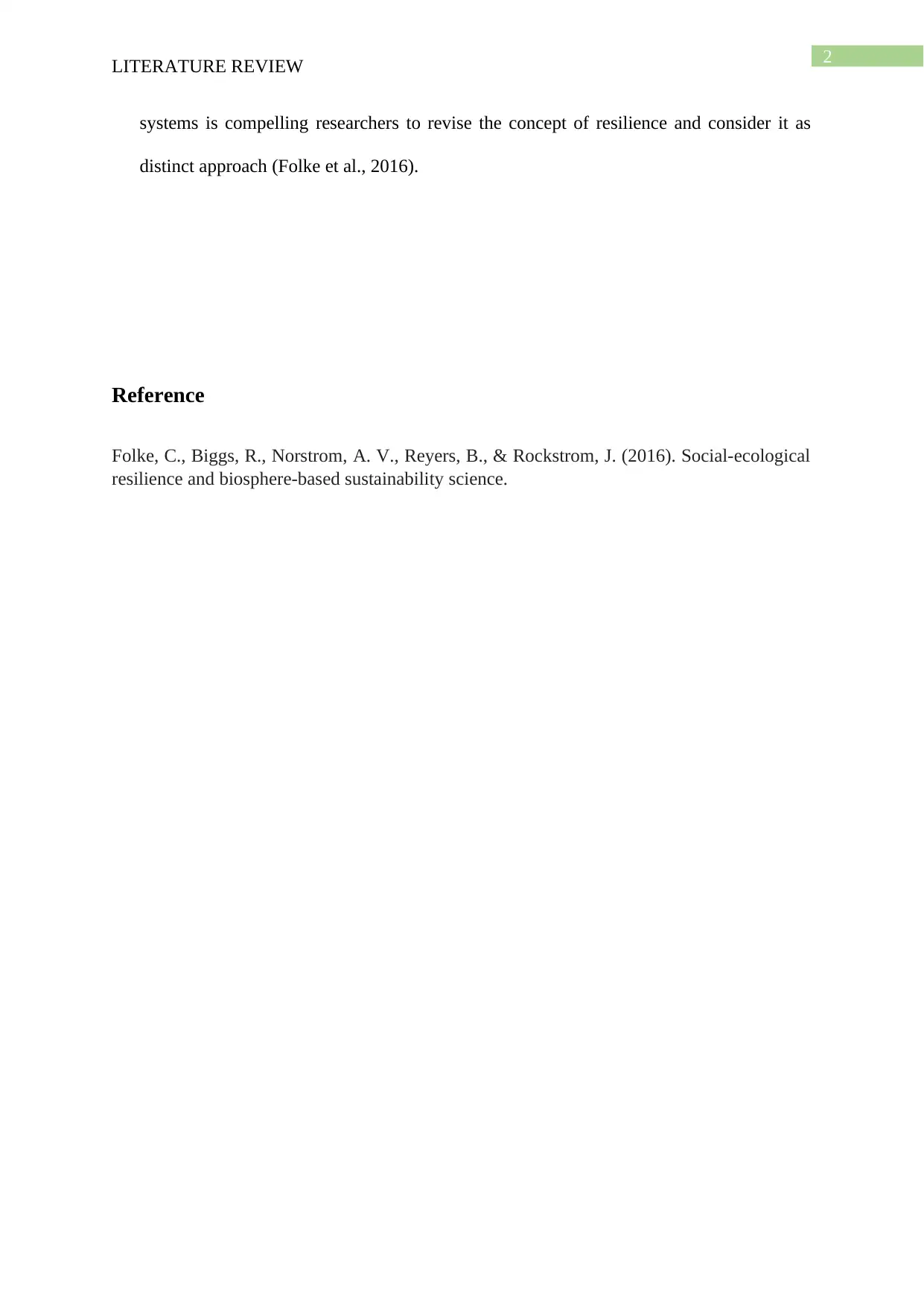Analysis of Resilience in Social-Ecological Systems: A Review
VerifiedAdded on 2022/11/16
|3
|387
|33
Report
AI Summary
This report offers a comprehensive literature review on the concept of resilience within social-ecological systems. It begins by tracing the origins of the resilience perspective, highlighting its roots in ecology and its challenge to the traditional stable equilibrium view. The review explores the evolution of resilience, emphasizing non-linear dynamics, thresholds, uncertainty, and the interplay between gradual and rapid changes across temporal and spatial scales. It discusses the shift from empirical observations and mathematical models to the adaptive management approach and the increasing integration of the social dimension in resilience studies. The analysis includes discussions on panarchy, adaptive renewal cycles, and the role of resilience in understanding and managing ecosystem changes. The study highlights that resilience has long been considered in the study of social-ecological systems as a phenomenon, and with the inclusion of social systems, researchers are compelled to consider it as a distinct approach. The report emphasizes the importance of resilience as a crucial framework for understanding and addressing complex social-ecological challenges, supported by various scholarly research and conceptual frameworks.
1 out of 3










![[object Object]](/_next/static/media/star-bottom.7253800d.svg)